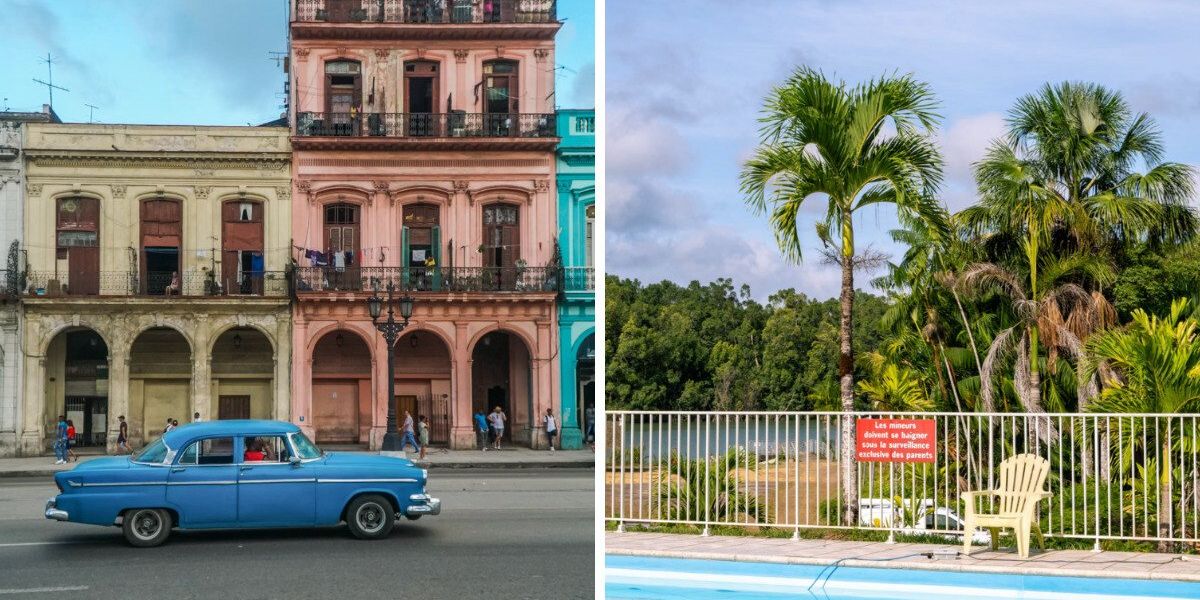If you’re considering a trip to Cuba before the end of the year, now’s the time to double-check your plans. The Government of Canada has just updated its Cuba travel advisory, warning travellers about worsening conditions on the island that could have a significant impact on your vacation.
As of September 12, 2025, Canadians are being advised to exercise a high degree of caution in Cuba due to widespread shortages of food, medicine, bottled water, fuel, and even access to foreign currency.
The country is also dealing with frequent and lengthy power outages, both scheduled and unexpected, which could significantly affect the availability of services — even in popular resort areas.
The latest travel warning came just days after a huge, countrywide blackout on September 10, which left the entire island without power for over 24 hours. It marked the fifth nationwide outage in less than a year, further underscoring the country’s ongoing energy crisis and strained infrastructure.
In response, Canada updated the “safety and security” section of its Cuba travel advisory, highlighting that daily power cuts are now scheduled to relieve pressure on the country’s overworked electrical grid. The advisory notes that while most large hotels and resorts use generators, fuel shortages have been limiting their effectiveness. This means even well-known resorts may experience service interruptions.
Fuel shortages are also affecting transportation. Travelling across the island has become increasingly challenging, with disruptions to public transportation and taxi services. There have been reports of tourists getting stranded with rental cars due to limited fuel availability, and long wait times at gas stations have led to disputes and altercations.
Water access is another growing concern. Intermittent shortages of tap water are being reported, including in Havana, and some beach resorts have also been affected — an issue that could easily impact comfort and sanitation during a stay.
In light of these ongoing issues, the Government of Canada strongly recommends that travellers heading to Cuba bring essential supplies with them, including medications, toiletries, bottled water, snacks, and a fully stocked emergency kit.
It’s also advised to keep your phone charged, monitor local news, and have contingency plans in place in case conditions worsen during your visit.
Beyond the supply challenges, the advisory also outlines more general safety and security risks in Cuba. Petty crime, such as pickpocketing and bag snatching, is common in busy areas like markets, beaches, and on public transit.
Fraud and overcharging — particularly in taxis, restaurants, and with independent guides — are also issues to be aware of, according to the travel advisory. The government recommends avoiding showing large amounts of cash, only using reputable services, and keeping valuables secure at all times.
There are also more serious concerns: sexual assaults have been reported, even at beach resorts, and some incidents have involved Canadian tourists. Travellers are encouraged to avoid secluded areas, especially at night, and to exercise caution when interacting with strangers.
Despite these challenges, Cuba remains a popular destination for many Canadians. If you still plan to travel, preparation is key. Bring everything you might need, stay informed, and be ready to adapt. With the proper planning, it’s still possible to have a safe and enjoyable trip — but it’s essential to go in with your eyes open and your expectations adjusted.
You can find Canada’s full travel advisory for Cuba here.
Before you get going, check out our Responsible Travel Guide so you can be informed, be safe, be smart, and most of all, be respectful on your trip.
AI tools may have been used to support the creation or distribution of this content; however, it has been carefully edited and fact-checked by a member of MTL Blog’s Editorial team. For more information on our use of AI, please visit our Editorial Standards page.
From Your Site Articles
Related Articles Around the Web


